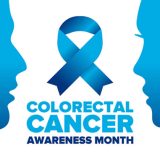Most of us have heard that an aspirin a day keeps a heart attack at bay. Unfortunately, an aspirin routine can do more harm than good in many individuals. While a desire to steer clear of a heart attack or stroke could motivate you to begin aspirin therapy, the decision to take aspirin on a regular basis should only be made under the recommendation of your personal physician.
One of the oldest drugs in existence, the effects of aspirin-like substances have been helping people since the time of Hippocrates. The following timeline brings appreciation to aspirin’s long history:
- 400 BC – The ancient Greeks recorded the use of willow bark (an herb that contains aspirin’s primary chemical) as a fever fighter.
- 1920s – Aspirin was used for pain relief for rheumatism, lumbago & neuralgia.
- 1948 – Daily aspirin therapy was touted as a means for protecting heart health.
- 2003 – Bayer filed a petition with the U.S. Food and Drug Administration (FDA) to broaden the professional labeling of aspirin to include heart attack prevention in specified individuals.
There are currently no directions on the label for how to use aspirin to reduce the risk of heart attack or clot-related stroke. This poses several dangers, because people could:
- Take a dose that is intended for a different purpose, which is too much for daily use.
- Begin aspirin therapy even though they are not ideal candidates. For some individuals, the risks of taking aspirin far outweigh the benefits.
- Combine aspirin therapy with another drug or supplement that could put their health in jeopardy.
In general, the only individuals eligible for aspirin therapy include those who:
- Have heart disease
- Have already had a heart attack or stroke
- Are at high risk for having a heart attack of stroke
If you fit these criteria, taking a low-dose aspirin each day could prevent a heart attack or stroke by making the blood less sticky – which in turn limits the formation of clots in the blood.
Unfortunately, the very reason that aspirin can help prevent cardiac events can also cause problems. Reducing the blood’s ability to clot can lead to hemorrhagic stroke (bleeding inside the brain), bleeding ulcers and severe (and deadly) gastrointestinal bleeding.
Those with the following conditions are at most risk from being harmed by aspirin therapy:
- A bleeding or clotting disorder where you bleed or bruise easily
- Asthma
- Stomach ulcers
- Heart failure
- Liver damage
In addition, many medications and herbal supplements can increase the risk of bleeding when combined with aspirin. The most common ones include:
- Warfarin (Coumadin)
- Ibuprofen (Advil, Motrin) when taken regularly
- Corticosteroids
- Certain antidepressants (clomipramine, paroxetine, others)
- Dan Shen (Chinese herb)
- Dong Quai (also spelled Dong Gui)
- Evening primrose oil
- Ginkgo
- Omega-3 fatty acids (fish oil)
- Policosanol
- Willow bark
Each one of these substances can create a dangerous situation when taken with aspirin, so it is important to discuss every one of your medications and supplements with your doctor. Additional concerns with aspirin include:
- Stopping daily aspirin therapy – A rebound effect can occur from stopping a daily aspirin routine. Suddenly stopping regular aspirin intake can actually trigger a blood clot.
- Surgery – If you’re taking aspirin and need a surgical or dental procedure, be sure to tell the surgeon or dentist the specifics of your aspirin regimen; otherwise you risk excessive bleeding (which could be fatal) during the procedure.
- Alcohol – The Food and Drug Administration also warns that people who regularly take aspirin should limit the amount of alcohol they drink because of its blood-thinning effects and potential to upset the stomach.
Because of the powerful effect it can have on the body, aspirin has been known as a wonder drug. Under a physician’s guidance, aspirin can be wonderful when it prevents a catastrophic blood clot. However, aspirin’s many risks and cautions related to bleeding make it a wonder that this drug remains over-the-counter.
The FDA’s Center for Drug Evaluation and Research (CDER) has launched a public education campaign to remind consumers that aspirin is not without risk; the decision to use aspirin to prevent a heart attack and stroke is safest when made in consultation with a knowledgeable physician. So, if you are considering daily aspirin therapy to prevent blood clots from forming, make sure you thoroughly discuss it with your physician prior to stocking up on aspirin.




